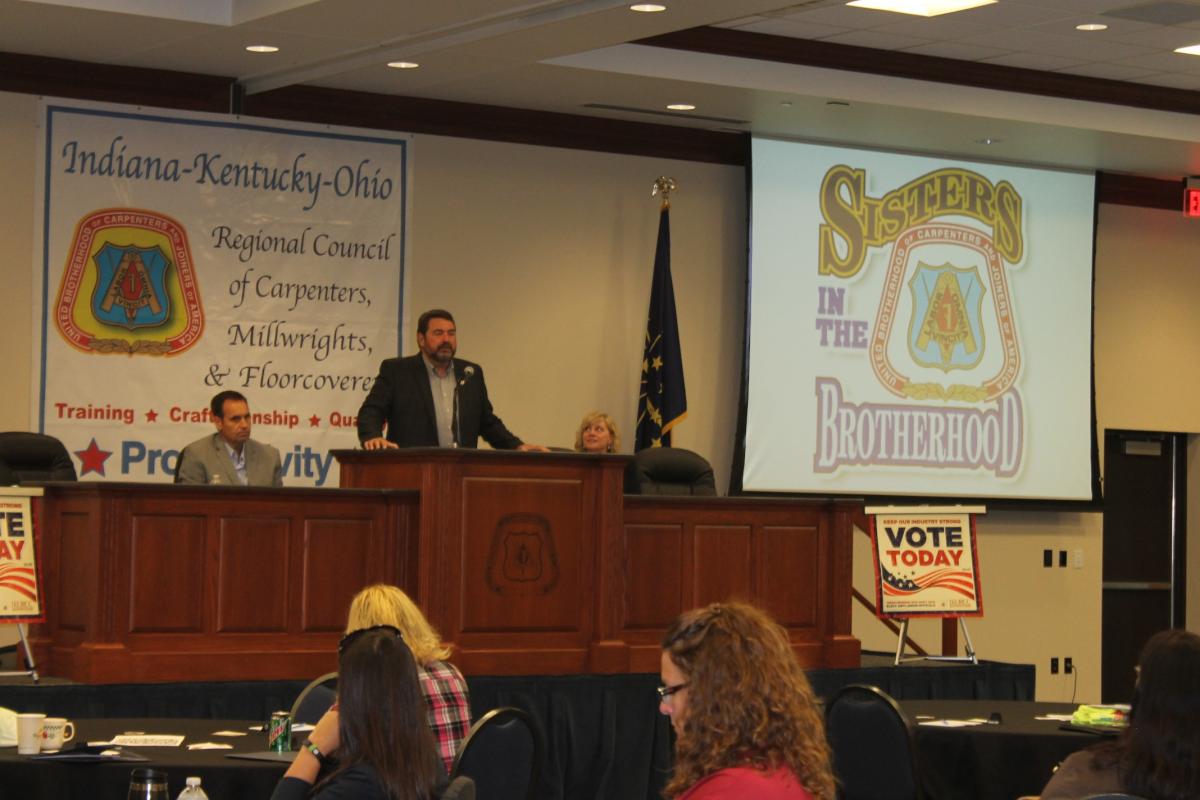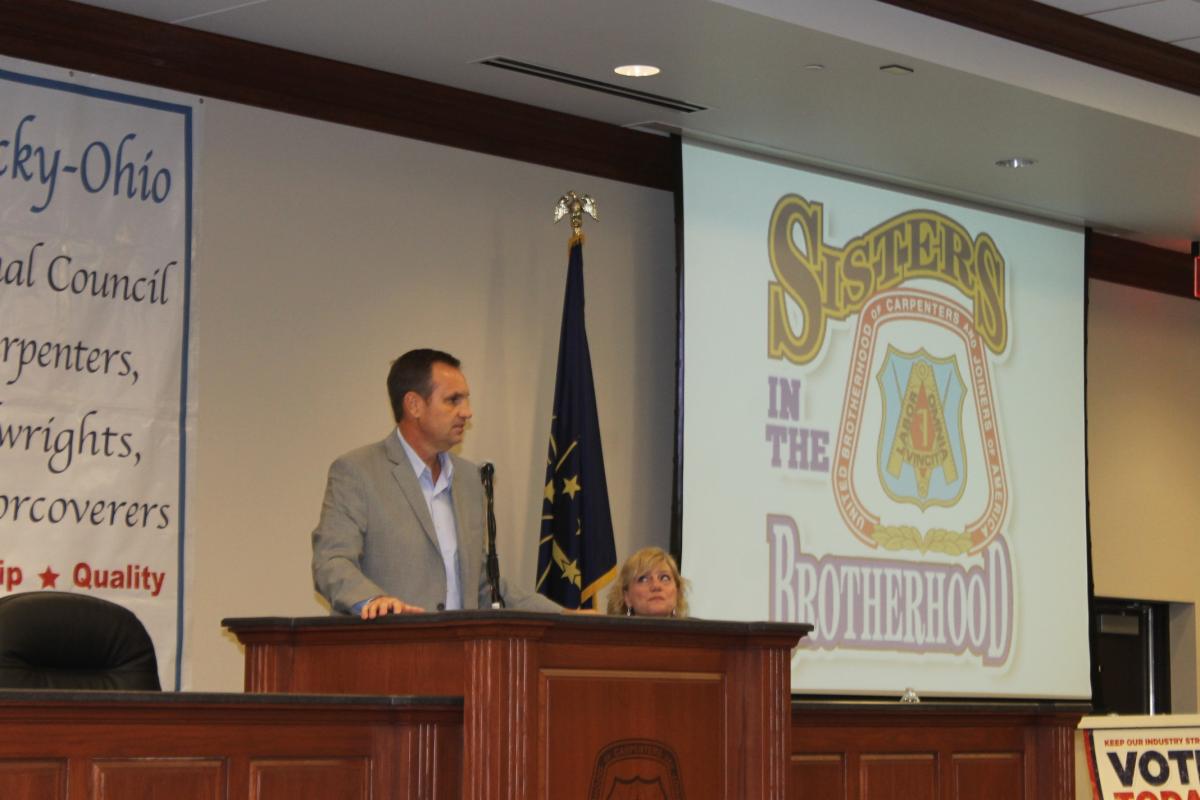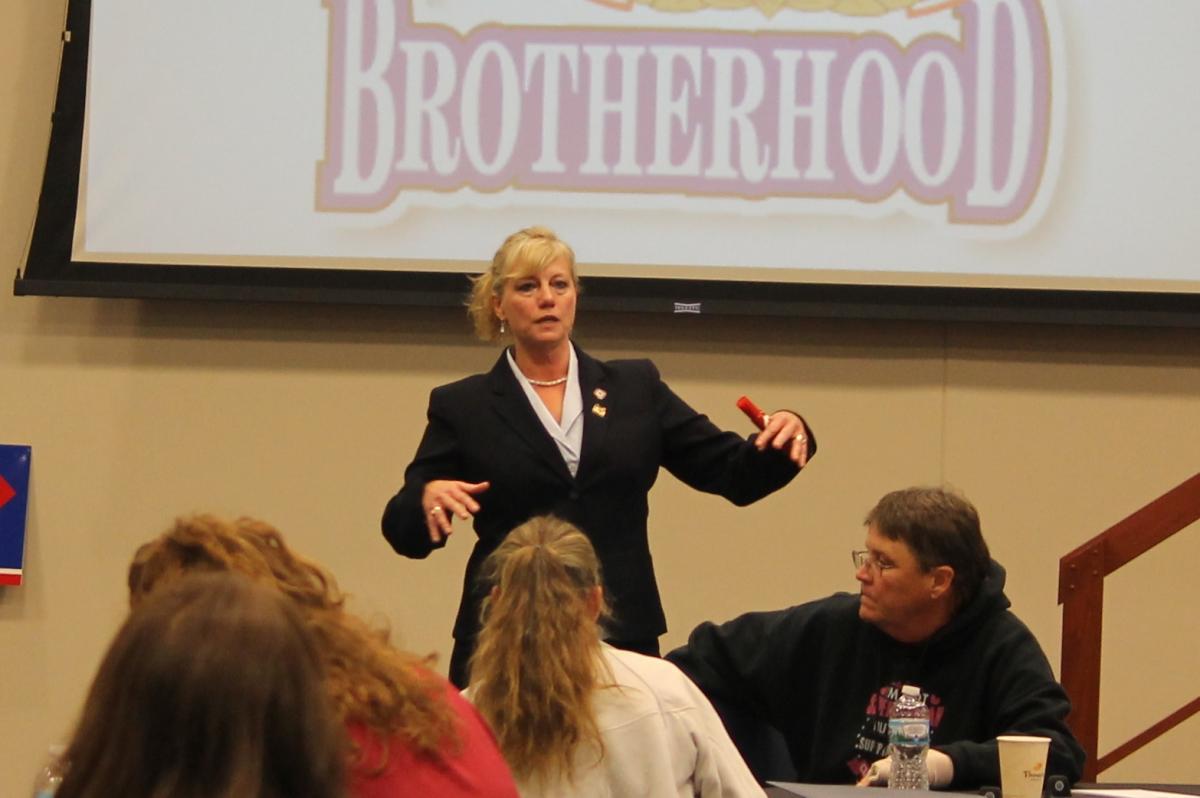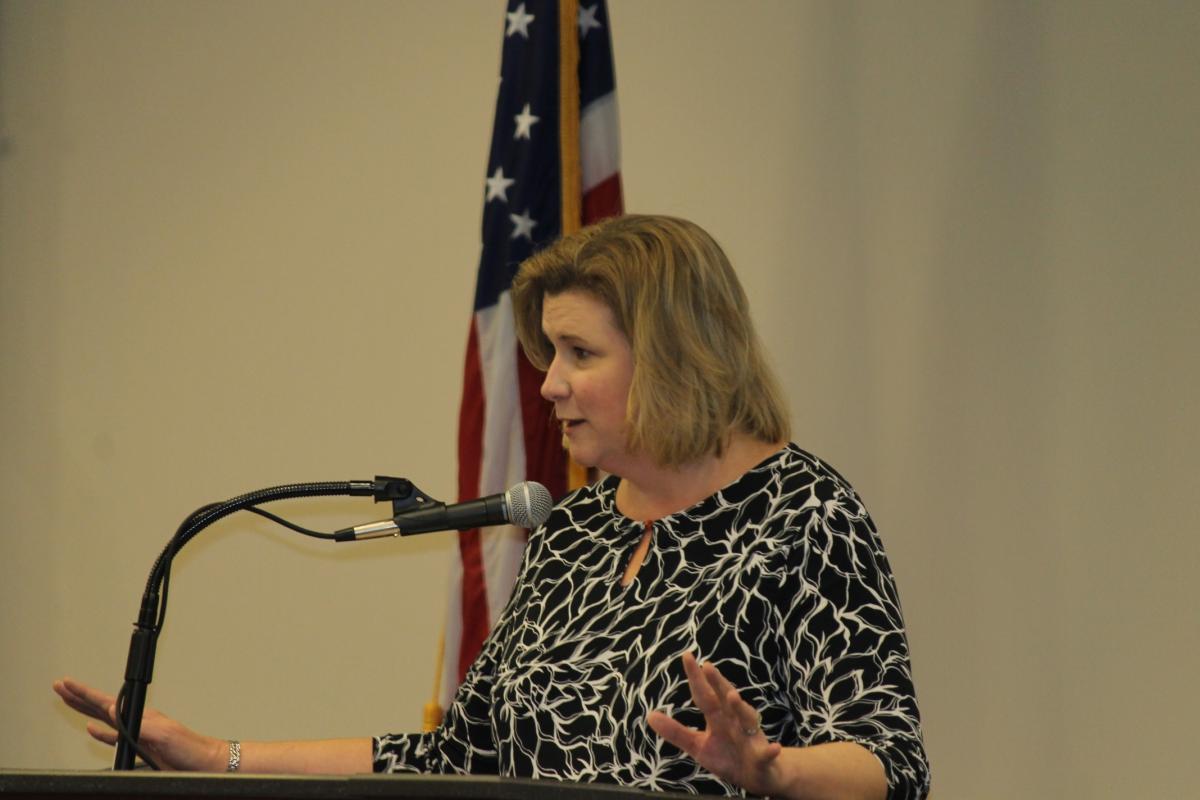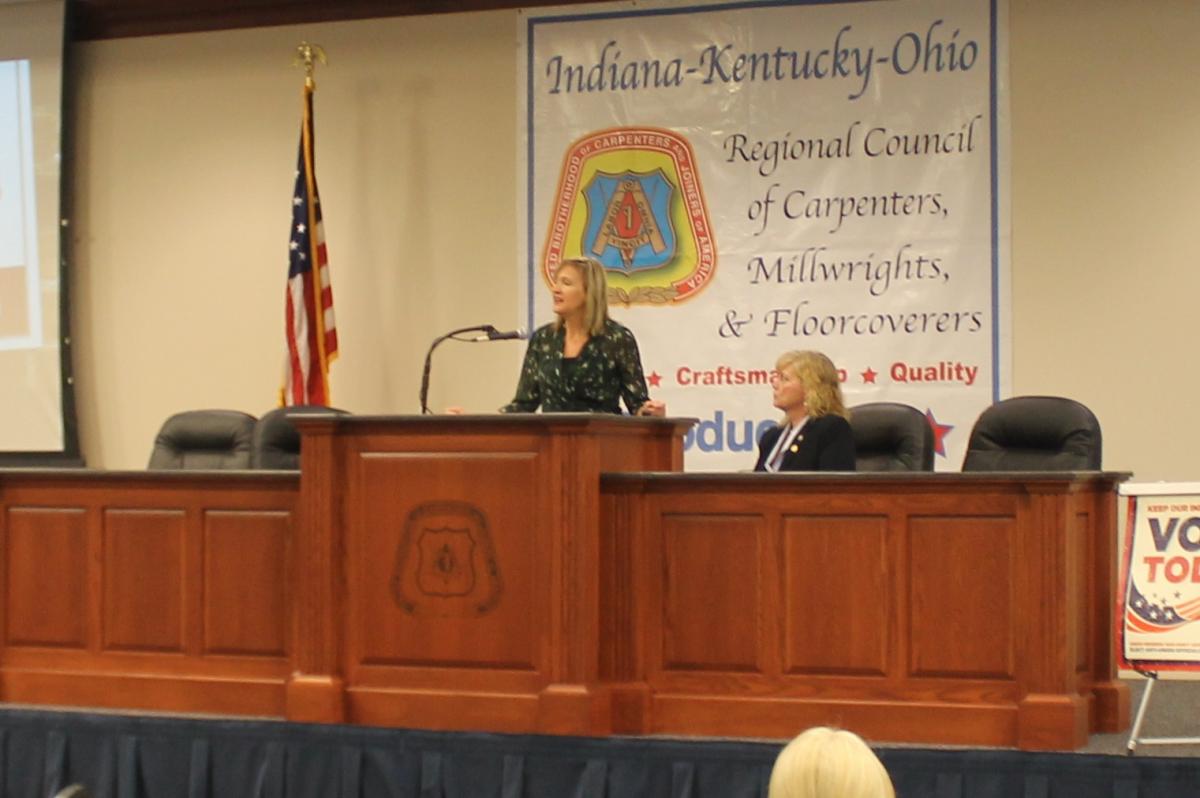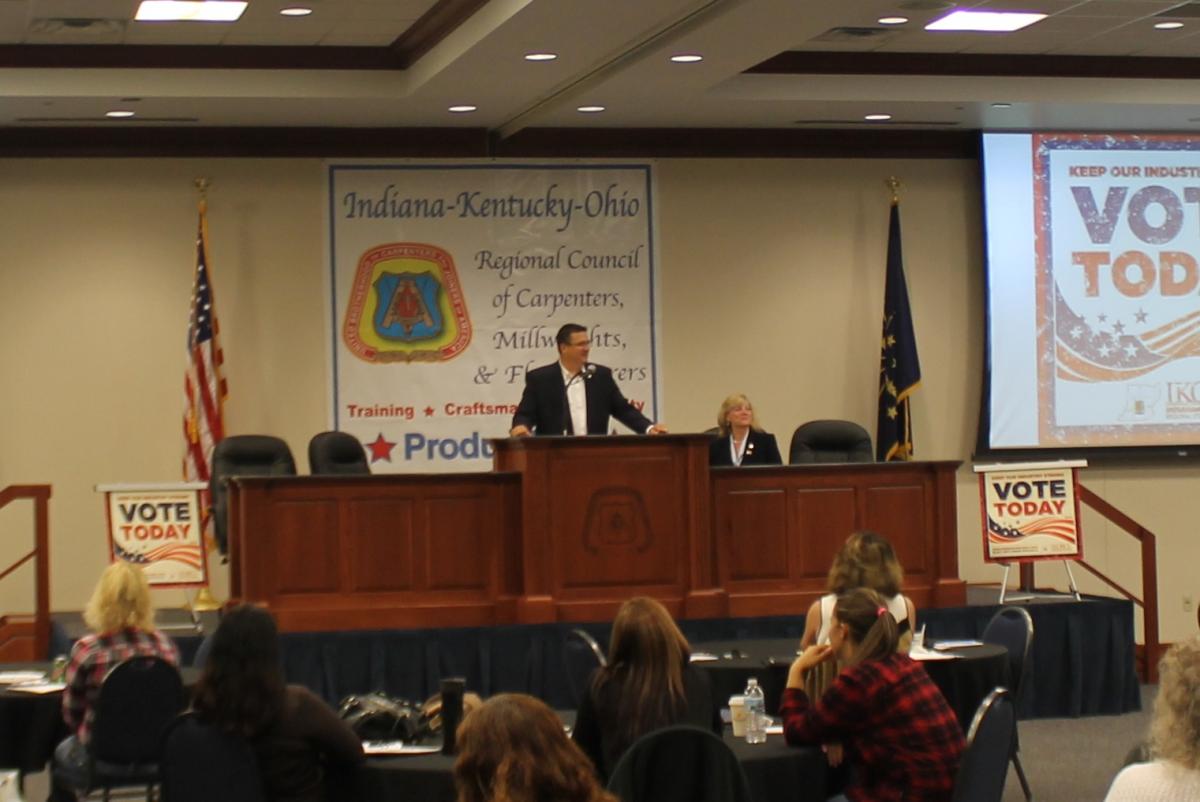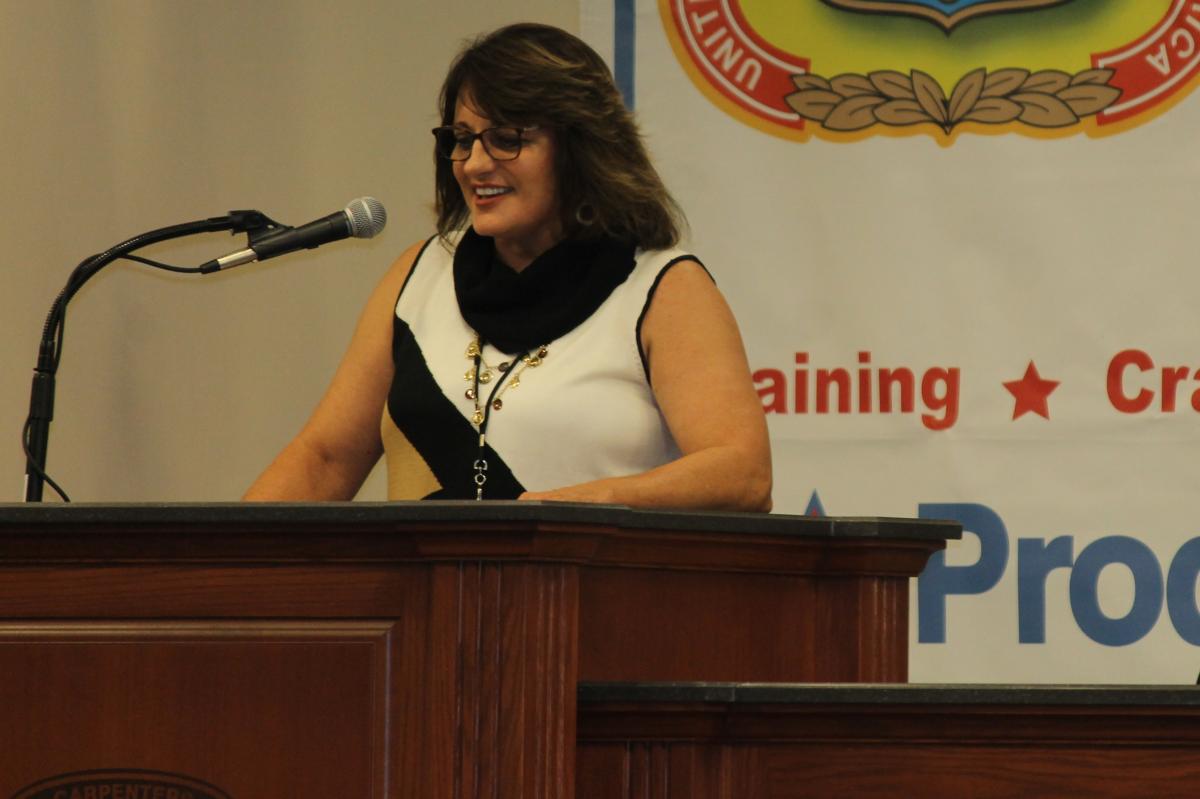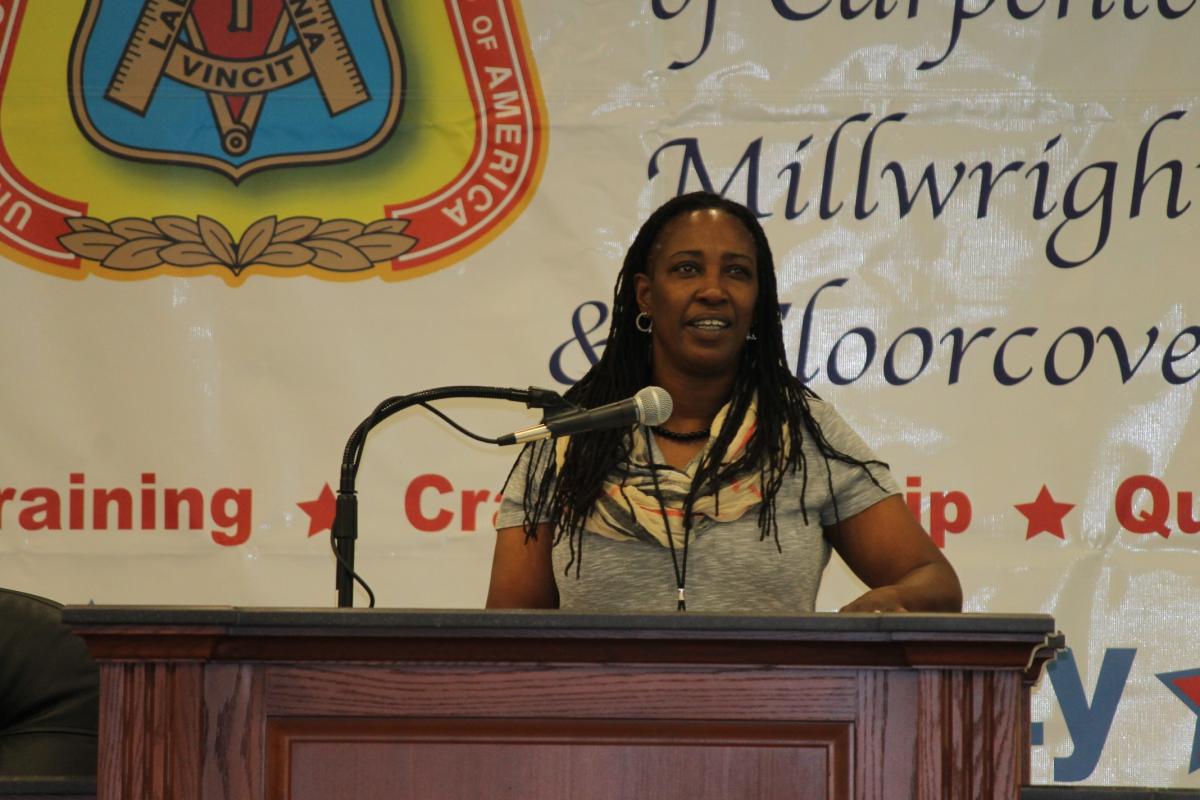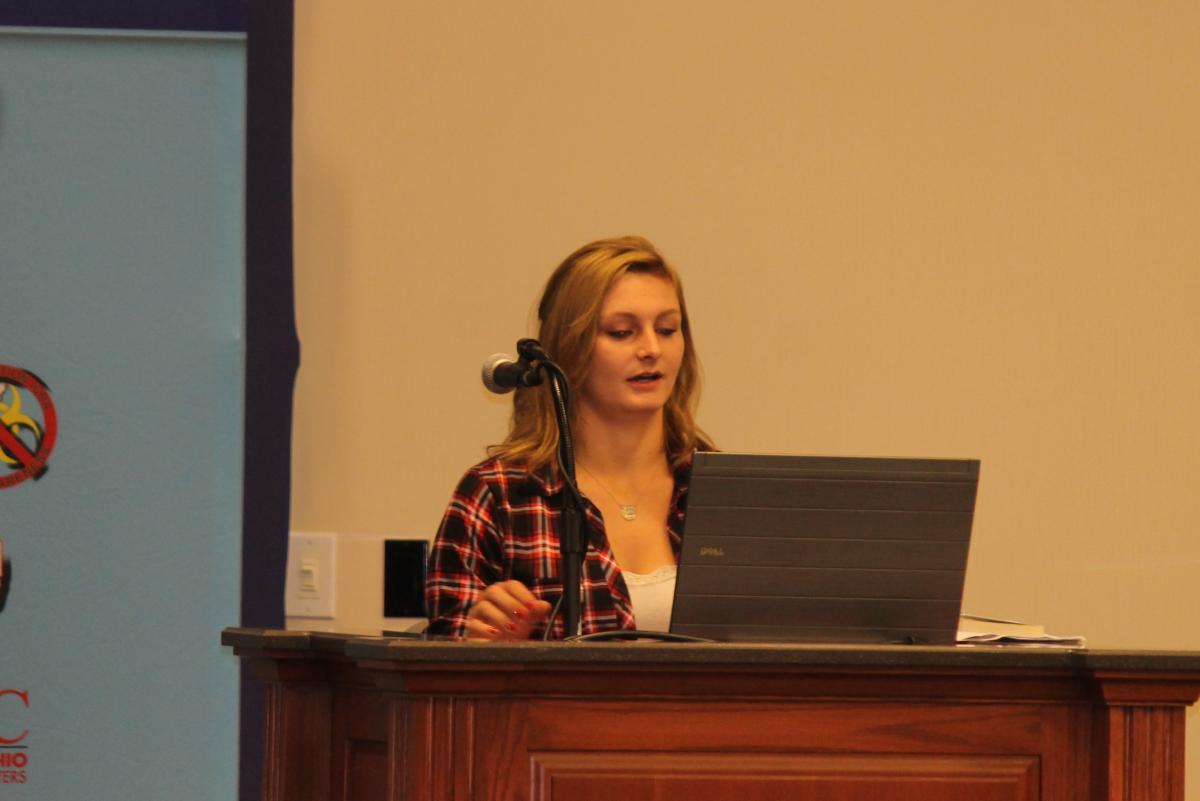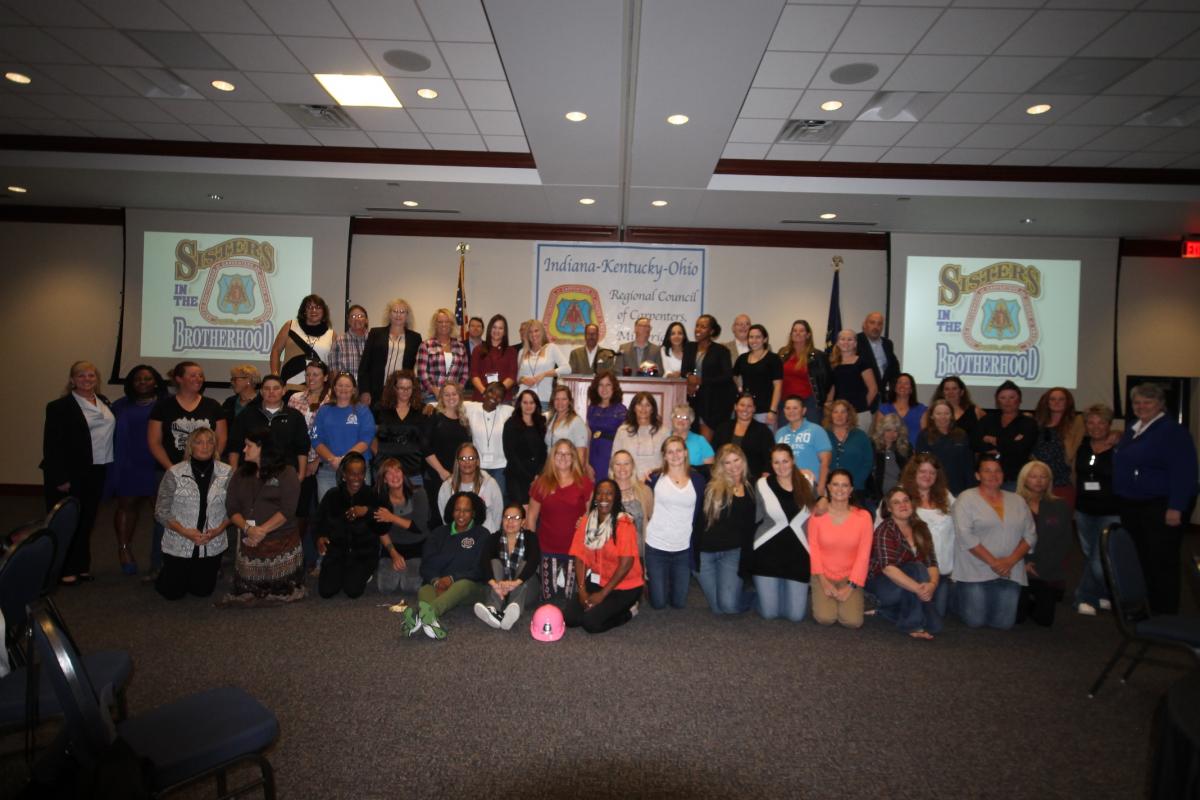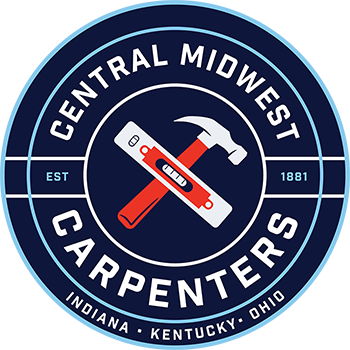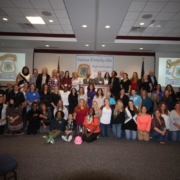Gilbert Charles, of Pinckney, is a U.S. Army veteran who served in the 1980s and moved to the skilled trades. His son, Matt, has followed in his father’s footsteps as a veteran and now as an apprentice learning how to become an electrician.
By Gilbert Charles
As we near Veterans Day, we will hear from many political leaders how grateful they are for our service. Some will express concern about veterans who return home and their opportunity to find a good job to support their families.
As a U.S. Army vet who served in the 1980s — and as the father of an Army veteran who served in Afghanistan — I always appreciate those thoughts. But I’m also concerned about efforts in the Legislature that would cut the pay of many Michigan veterans working in the construction industry.
I returned to Michigan after my service, and looked around for a good job, one that would let me build on my training, provide fairly for my family, offer decent health care benefits and a path to retirement. I found that job, training in an apprentice program and becoming a journeyman electrician as a member of IBEW Local 252. A portion of my paycheck each week goes to the apprenticeship program, to ensure those veterans and others who come after me get the training they need to do their job well and safely.
That turns out to have been a good investment. Now my son Matt is following in my footsteps. He’s in the Local 252 IBEW-NECA apprenticeship program, earning while he learns, at no cost to taxpayers. We know a lot of veterans in the industry. A recent report by the State of Michigan showed that about 9 percent of veterans are in the construction industry, compared with about 6 percent of state workers overall. And many were attracted to the fair pay and good training made possible by the state’s prevailing wage laws.
It’s exciting to see my son work in major, complex construction jobs at the University of Michigan — jobs that demand the skills I’ve gained over the years. But it’s not clear that good paying jobs in the skilled trades professions will be available to future vets.
A handful of politically powerful special interests want to cut the pay and benefits going to skilled trades workers by eliminating prevailing wage policies, even though research shows taxpayers won’t save a dime.
Prevailing wage policies say that taxpayer-supported jobs have to pay the going rate of pay in the region — usually the union-negotiated wage. Any company can bid, union or nonunion. But they have to pay a fair wage rate. It helps keep out-of-state companies from coming in with cheaper, less skilled workers to do the minimally acceptable job that meets minimum standards.
It’s in the state’s best interest to attract veterans such as Matt into the skilled trades, where there is a shortage of workers today. But without prevailing wage policies, the job will be a lot less attractive — in fact, many skilled-trades workers, including veterans, won’t enter the profession, or will go to another state. (Other Midwest states have prevailing wage policies, it’s mostly low-paying states in the South that don’t). Union apprenticeship programs will also disappear, and taxpayers will have to pay for those programs.
So this November, don’t just thank Matt and I for our service. We know you appreciate that. Take another step. Tell your lawmakers to support good jobs for veterans by supporting prevailing wage laws. That way Michigan veterans can return confident they will be able to get good training and support their families by taking jobs in the skilled trades

